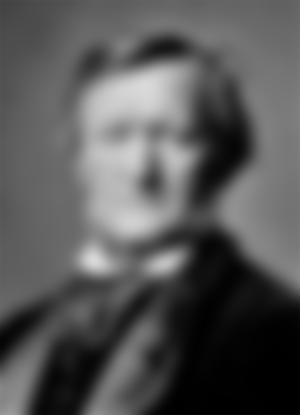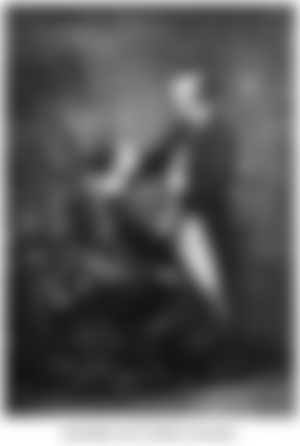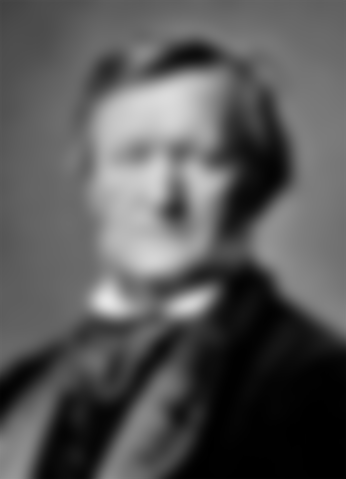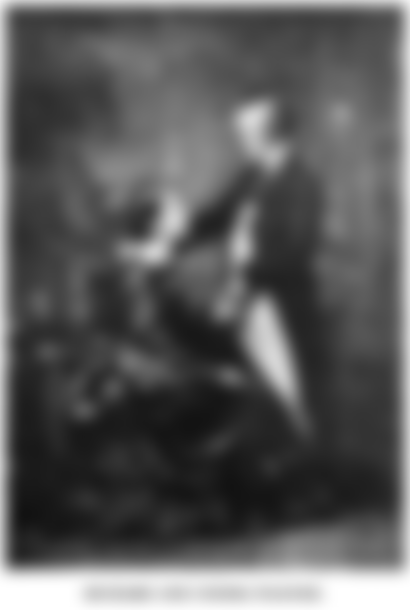“One supreme fact which I have discovered is that it is not willpower, but fantasy-imagination that creates. Imagination is the creative force. Imagination creates reality.”
(Richard Wagner)
On 22 May this year (originally published in Meriondho Leo 2013, the year of Wagner's 200th birthday, but never before published on internet), it has been 200 years since the birth of Richard Wagner, one of the greatest creative geniuses of the western culture. His fame is based mainly on his operas, or music dramas, where he composed the music and wrote the librettos. More than that, he tried to create the total work of art, including elements from all forms of art combined to a great whole: a Gesamtkunstwerk. Wagner did not see this as something new, but as a return to an art that existed before the fall of Athens of Antiquity, when, according to him, a Zersplitterung der Kűnste took place and then gradually developed further through the ages. His vision was to reunite the arts.

While the Gesamtkunstwerk ["total work of art"] was most clearly manifested in his opera cycle, Der Ring des Nibelungen, another opera, Tristan und Isolde, is the beginning of modern classical music and atonality. The bitonal so-called Tristan chord, which repeatedly changes from major to minor keys, is a bold step away from the harmonies of classical music up until then. At the same time it illustrates another one of Wagner's ideas, the one about leitmotifs. The changes of the Tristan chord reflect not only Tristan's emotions, but also his subconscious feelings. This is very subtle.
"Everything lives and lasts by the inner necessity of its being, by its own nature's need."
(Richard Wagner)
Wagner was not only a creator of operas, he also wrote extensively – about his Gesamtkunstwerk, of course, and about his philosophy of art, but also about other things.
He was a versatile creative genius, but also a terrible person. Selfish, unscrupulous, and totally amoral, he never hesitated to use others for his own purposes. For a long time he was forced to live in exile, wanted as a terrorist, and until he met Ludwig II of Bavaria, who financed parts of his expensive life and work, he was often on the run from his creditors.
In 1870, after a scandalous beginning, Wagner married Cosima, the daughter of Franz Liszt. Wagner and Liszt were close friends at that time. Liszt did early support Wagner and helped him get his works set up. He produced the first performance of Tannhäuser in 1845, and of Lohengrin in 1850.

No doubt, Franz Liszt influenced Wagner's subsequent music. In Liszt's orchestral works, it is possible to find precursors to some of Wagner's musical ideas from this period, and Wagner might very well have taken them as his own. Liszt, who was a kind and generous nature, just let it happen. Even today, it is impossible to say how much or little Liszt really influenced Wagner. But one thing for sure is that the influence of Liszt on subsequent classical music is still not fully appreciated.
Unfortunately, Hitler came to appropriate Wagner's music, and that damaged the appreciation of his art for half a century.
If you want to read about Richard Wagner and his ideas, there are countless books to choose from. I suggest, however, to start with his own writings, especially if you aim at understanding his philosophy of art. A good beginning is:
Das Kunstwerk der Zukunft , 1849 [The Artwork of the Future]
Die Kunst und die Revolution, 1849 [Art and Revolution]
Oper und Drama, 1851 [Opera and Drama]
These texts and many more can be found at http://users.belgacom.net/wagnerlibrary/prose/
Wagner's operas are long and massive; if you are not used to opera you can hardly appreciate them. Still they are in a way very modern. Fans of Tolkien and the more mature parts of the fantasy genre that has developed after him, will feel at home in the mythological environment of the Ring cycle, or Wagner's last opera, Parsifal.
"Even if I know I shall never change the masses, never transform anything permanent, all I ask is that the good things also have their place, their refuge."
(Richard Wagner)
Related article: Genuine Ultramarine, Once One of the Most Costly Pigments in the World (Mentioning Wagner and “Parsifal”.)
Copyright © 2013, 2018, 2021 Meleonymica/Mictorrani. All Rights Reserved.
Here you can find my articles about History, and here about History of Music.
Interested in history, legends and myths, join my community History, Myths, Legends & Mysteries (be45).
You find all my writings on Read.Cash, sorted by topic, here.
My 5 most recent articles:
Monodiet or Varied Diet? Multinutrition or Serial Variation?


I think I have heard about this man Richard Wagner before and came across some of his quotes. I use to think he was a philosopher. I would read something about his works. Thanks sir.